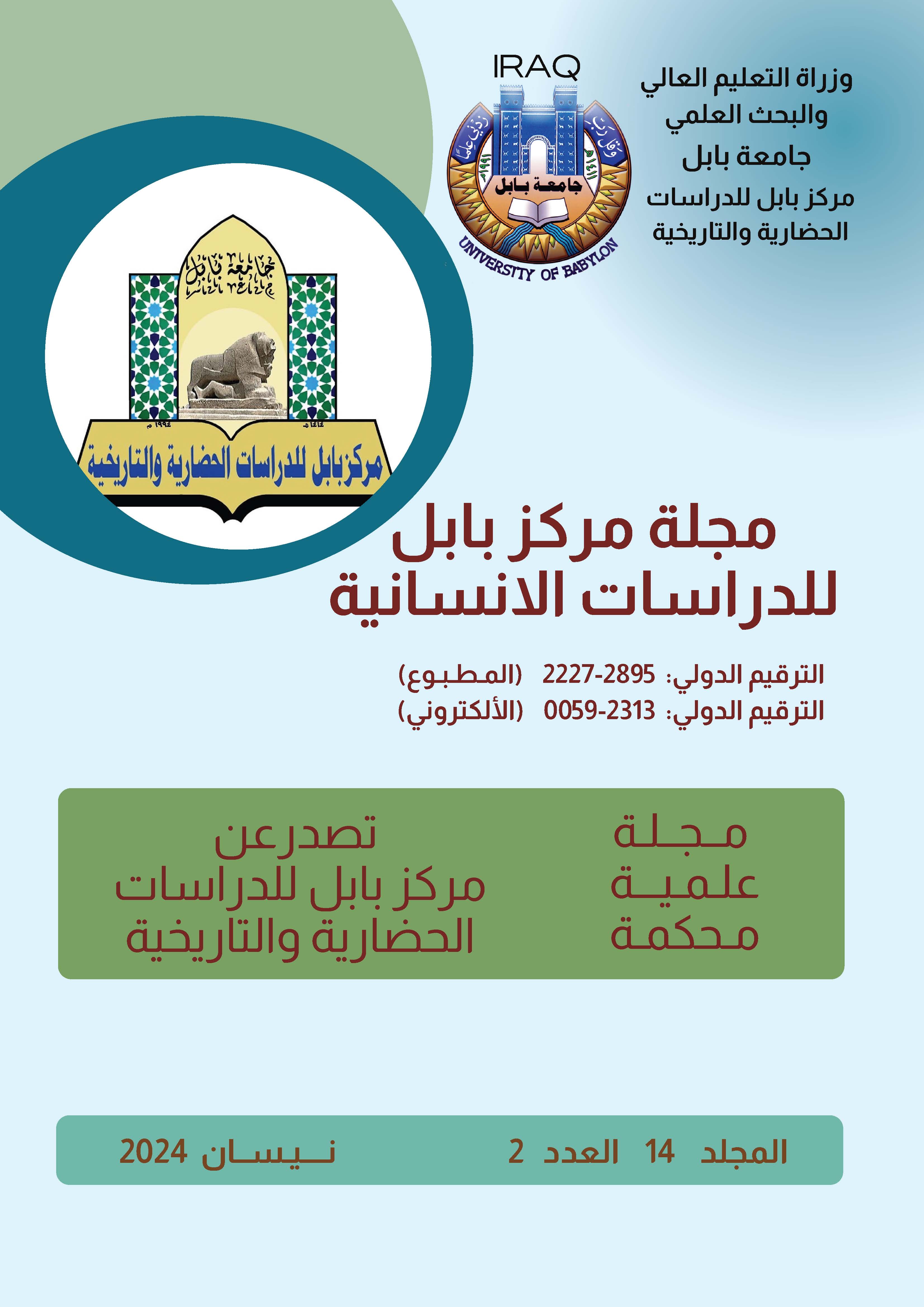Patterns of rights and political conflict according to the writer Ali Hassan Al-Fawaz
Keywords:
implicit system, rights, civilization, revolution, Ali Hassan Al-FawazAbstract
Ali Hassan Al-Fawaz is one of the most prominent Iraqi writers and writers. He created many valuable books in literature and culture. The writer was concerned with rights, civilizational conflict, and revolutions, and his thought mixed literature and political thought. Given the value of his books and the importance of their scientific material, we found that we should study the system of the right to freedom and equality and the system of conflict. Civilizations and revolution systems Illusionism in his literary work through the descriptive and analytical method. The research concluded that Al-Fawaz believes that implicit freedom and equality are necessary between individuals, the family and society, and that persistent and effective efforts to strengthen it, disseminate its values in the media, facilitate all ways and possibilities for the coexistence of cultures within its framework, teach people their rights and freedoms, and urge them to protect them with awareness, will and responsibility, and spreading the values of tolerance represent a moral duty. Politically and legally, on the basis that the essence of tolerance is not based on canceling the rights of others, transgressing their values, and ignoring social evils and political grievances, as much as it means promoting the values of openness, solidarity, virtue, exchange of cultural benefits, partnership in responsibilities and rights, and construction through belief in human dignity and equal rights without distinctions in Race, colour, gender, language, religion and political opinion. He also stressed in the theme of the civilizational conflict that it cannot enable us to cut our bridges with the world in the midst of civilizations and crises with poetic or prose writings, if we lay the foundations for a new world in which respect and appreciation for the preferences of all people prevail, and to develop dialogues within the framework of searching for horizons or opening... Channels that would support this, and without any imposition or coercive practice, as Al-Fawaz believes that the pattern of imaginary revolutions according to Al-Fawaz lies in what was done. He discovered too late that these imaginary and ideological revolutions that left scars, disabilities, beliefs and temptations that are difficult to erase, and learn habits in meetings and politics and instill Strange illusions and anomalies.







